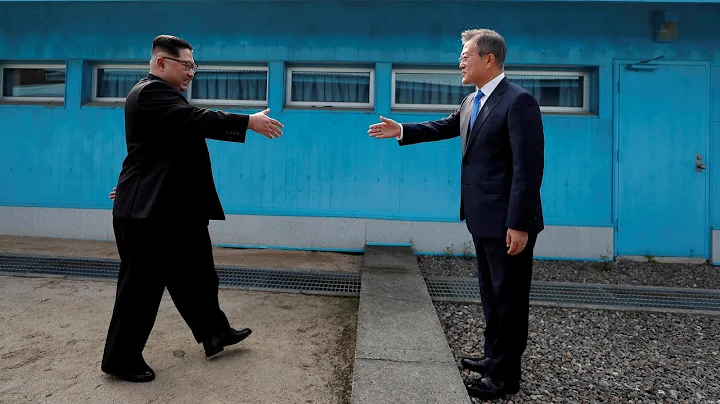After the outbreak of the Fourth Battle, the Volunteer Army once annihilated part of the enemy's main force in the Hengcheng counterattack. However, because the new batch of volunteers entering North Korea had not yet arrived in North Korea, the frontline troops were seriously insufficient, coupled with the lack of supplies. Difficulties, food and ammunition are very scarce. In desperation, the volunteers had to stop attacking and began to retreat north.

Starting from February 17, 1951, the volunteers on the front line began to switch to mobile defense, blocking the enemy one after another, luring the enemy to continue deeper, while retreating northward. According to the plan of the Volunteer Army Headquarters, it will take about two months to regroup the troops and at the same time improve the current situation of transportation to transport a large amount of combat materials to the front line for storage. After the enemy reaches a certain position, concentrate your efforts to counterattack.
According to this plan, a total of 8 armies of the Volunteer Army and the Korean People's Army, as the first echelon, will first defend at the mouth of the Han River, Yangpyeong, Wonju, and all the way to Pyeongchang, delaying the enemy from continuing to attack northward so that Gain one month for a new round of combat. Since the Battle of Tuipingli, the 40th Army of the Chinese People's Volunteer Army has been moving northward while taking a short rest in order to serve as the second echelon of troops to support the front line.
On March 12, the 40th Army began to take over the defense line of the 42nd Army, and was responsible for defending the vast area starting from Hongchuan in the east, Zuofangshan in the west, the north bank of the Hongchuan River in the south, and south of Jinhua in the north. The first unit of the 40th Army to arrive at the front line was the 118th Division. They officially entered the position on March 14. Subsequently, the 352nd and 354th regiments of the 118th Division began to deploy their forces to block the enemy's attack from the front.

Based on the experience of the first echelon troops, when deploying the two regiments of the 118th Division, they adopted the approach of "light troops in the front and heavy in the rear, and heavy firepower in the front and light in the rear". The so-called "forces are heavy at the front and light at the back" means that a squad or even a combat group is dispatched in front of the position, responsible for occupying strategic points within a range of tens to hundreds of meters, guarding traffic arteries, and delaying the enemy's attack. These squads and groups They mainly fought independently, using points to control the surface. Behind them, they advanced layer by layer in platoon and company positions. In this way, not only can they avoid massive casualties caused by the enemy's ferocious artillery fire, but they can also support each other, ultimately achieving the goal of resisting the enemy step by step.
The so-called "firepower is heavy in the front and light in the rear", that is, heavy firepower such as mortars, heavy machine guns, etc. are placed as far forward as possible so that the greatest firepower advantage can be exerted to support frontline troops in combat. At the same time, other artillery also Concentrate your efforts to bombard the enemy in order to cause a large number of casualties to the enemy. In this way, the enemy's "sea of fire tactics" can be resisted through fire blockade. Under the guidance of the tactical thinking of "strength is lighter in the front and heavier in the rear, and firepower is heavier in the front and lighter in the rear", the front line of the position has become an active stage for small units of the Volunteer Army.
html On March 21, the 7th Company of the 354th Regiment was ordered to enter the forward position of Yelian Mountain south of Chuncheon to organize defense. In accordance with the tactical requirements at the time, the 7th Company sent out the 4th Squadron and asked them to search and reconnaissance forward so that the troops could understand the enemy's situation in the Yelian Mountain area while looking for opportunities to occupy strategic points ahead. That night, Class 4, led by squad leader Ni Zhongcheng, quietly left the forward position and went deep into the dark forest.

html Class 14, deputy squad leader Zhao Baoquan led the second group to the front to explore the road, while Ni Zhongcheng led a group to follow behind for support and cover. As time went by, Squad 4 slowly searched forward. Although they never encountered the enemy, everyone knew that the further they moved forward, the farther away they were from their own positions and the closer they were to the enemies. After walking forward for a while, Ni Zhongcheng asked the whole class to stop and gather temporarily near a big rock, leaving only Zhao Baoquan to continue exploring the path alone.
Zhao Baoquan walked forward alone for a while, and suddenly found a fire flashing in the darkness in front of him. There must be no ordinary people on the mountain in the middle of the night. He immediately realized that there might be enemies ahead, so he sneaked forward. When he was about to approach the fire, Zhao Baoquan looked carefully in the direction of the fire and found that the fire turned out to be a group of American soldiers sitting there warming themselves up.Seeing that these American soldiers were not prepared at all, Zhao Baoquan certainly would not miss the opportunity. He silently thought about the simple English he had learned, and then immediately rushed up, pointed his gun at the American soldiers and shouted: "Khanzhiah!" "Pounce!"
This means asking the enemy to put down their weapons and surrender. After shouting this sentence, Zhao Baoquan discovered that there were a total of 5 American soldiers here. He was actually sweating in his heart. There were five enemies, and he was alone now. If these five people resisted, he would definitely not be able to stop them. In fact, Zhao Baoquan was overly worried. He probably had never encountered a night attack. These soldiers were very lax. They hung all their guns on the trees while warming up the fire and had no time to take them down. Naturally, these American soldiers did not dare to resist with bare hands, so they had no choice but to raise their hands and surrender.

In fact, there were three US military sentries standing guard more than ten meters to the left of the fire. They originally wanted to rush over to support after hearing the noise here. However, Ni Zhongcheng had already followed him with two soldiers, Hou Zonglin and Chen Guangfu. They happened to bump into three US military sentries. This time it happened that one person was captured, and the three people easily captured three prisoners. In this way, Squad 4 directly eliminated an enemy squad without using a single bullet, captured 8 prisoners, and seized 1 light machine gun, 3 automatic rifles , and 3 carbines .
According to general custom, you can return to the position after capturing the prisoners, but Ni Zhongcheng didn't think so. He had other ideas. In his opinion, since the enemy has deployed a squad of troops here, this must be a strategic location occupied by the enemy. According to the enemy's habit, they would send troops here to change defenses after dawn. If Squad 4 were to ambush here, after the enemy's troops to change defenses came over, they might be able to eliminate another enemy squad. When Squad 4 came out, they originally wanted to find a strategic location to delay the enemy's attack, and this place was just right.
Afterwards, Class 4 quietly ambush nearby, waiting for the enemy to arrive. At dawn the next day, the enemy indeed sent a squad over to change the defense. The enemies of this squad never thought that the volunteers had already been waiting for them here. After the enemy entered the ambush circle, Squad 4 suddenly opened fire. The enemy was caught off guard and was eliminated on the spot. The sound of gunfire alerted the nearby enemies, who subsequently launched three attacks, but were repulsed by the 4th Squadron. After a day of fighting, Squad 4 eliminated more than 30 enemies in total. After dark, Squad 4 returned to the main position with the prisoners, with only one casualty in the squad. The performance of Class 4 was commended by the "Chisi". Zhao Baoquan was awarded first-class merit in , and Class 4 was awarded second-class merit in collective .

Soon after, the 118th Division completed the task of mobile defense and began to withdraw from its position and move to the north. In just ten days of fighting, the 118th Division conducted a total of 41 large and small battles, eliminated more than 970 enemies, and successfully delayed the enemy's offensive.





















